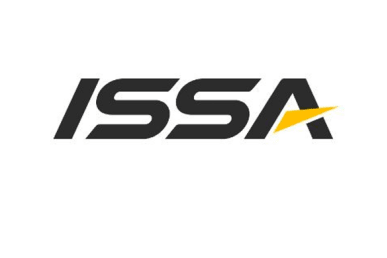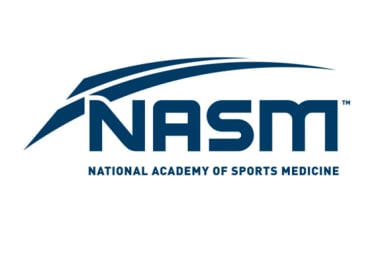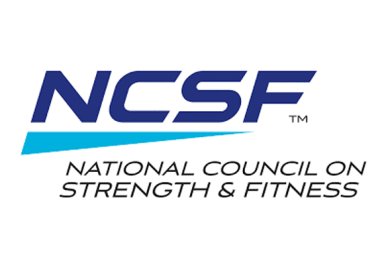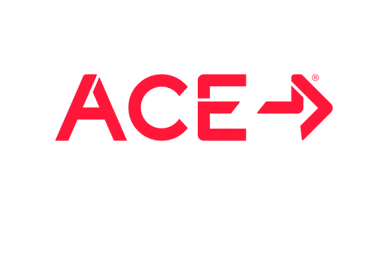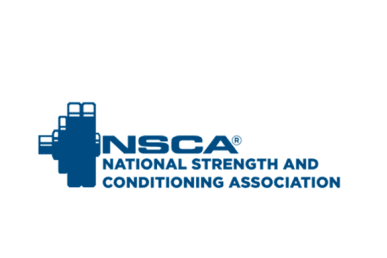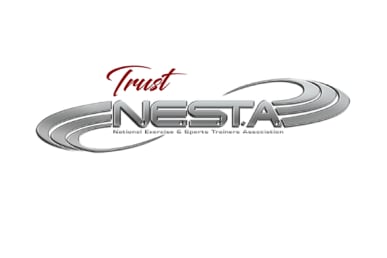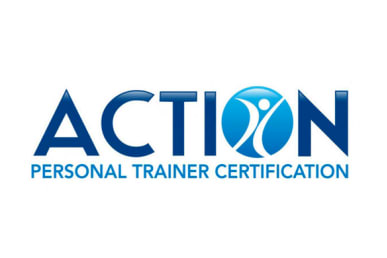Advertisement
7 Best Personal Trainer Certifications & How To Choose



If the next step in your fitness journey is becoming a certified personal trainer (CPT), then you're in luck. The demand for fitness trainers in the United States is growing 16% faster than the average for other careers, per the U.S. Bureau of Labor Statistics.
While making the choice to become certified is easy, finding the right program is more complicated. Not all personal training certificates warrant the same level of respect within the industry—and factors like time and budget can play.a huge role in the right program for you.
We interviewed certified personal trainers to help determine what courses carry the most weight in the fitness world, and filtered options by accreditation, duration, renewal cycle, and rating to create our vetted guide of the best personal trainer certifications of 2023.
- Best for new personal trainers: ISSA
- Best investment: NASM All-Inclusive or Guided Study Programs
- Best for beginners: NCSF
- Best online program: ACE Personal Training Certification
- Best in-depth: NSCA CSCS®
- Best long-lasting: NESTA
- Best affordable: ACTION-CPT Certification
Why should you become a certified personal trainer?
A personal trainer certification program prepares you for the CPT exam by giving you the knowledge and skills you need to earn your certification, per The Strength Club founder Kenny Santucci, CPT.
"A personal training certification gives you the required degree to coach someone in health and fitness along with the background of anatomy, physiology, exercise science, and exercise programming," he explains. "It provides the fundamentals of fitness, movement, exercise science, training, and coaching and can help people do it safely and effectively."
It's worth noting that many personal trainer certifications generally need to be renewed every two years. You won't have to retake the course, but you'll need to pass the exam again. Some offer the option to recertify for life, with continuing education courses for credits.
Types of personal training courses
There are plenty of personal trainer certification programs available, and they are not all created equal. Knowing how to navigate the minefield of choices is crucial to choosing a quality program.
Santucci explains, "There are nationally recognized certifications such as NASM, ACE, ISSA, and NSCA. In recent years, there are different organizations that have developed their own courses and certifications that trainers can take, that are both general and on more specific topics in the field such as CFSC, John Rusin, and N1 Training."
Most of the options we've recommended are nationally recognized, save for a few exceptions. Every program listed here is also NCCA accredited.
The best personal trainer certfications
ISSA
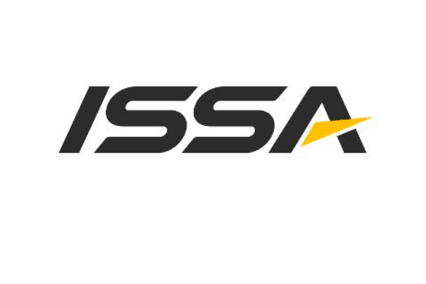
International Sports Sciences Association (ISSA) certification course boasts an impressive 90% pass rate—and we love that the brand offers a few ways for you to complete the course. Our personal favorite is the 4-week Fast Track Program, which offers a pared down approach to the brand's CPT course that focuses on just the essential for an extra $99.
You still get the information that you need to be get accredited, but the course goes at a much faster pace. Plus, all ISSA participants get their very own personal coach to study with before the exam.
ISSA is also said to be less challenging than NASM—another industry-respected course—but you still get an NCCA-accredited course.
ISSA boasts over 10,000 five-star reviews. One ISSA-certified trainer writes, “ISSA made it so easy for me to not only become an elite personal trainer, but a smart business person in the health and wellness industry. If you’re looking to begin or extend your fitness career, I can’t think of a better organization.”
Pros & cons
Pros & cons
- Fast-track accelerated course (4 weeks)
- Unlimited exam time
- Known for their lifetime professional support
- Not as in-depth as other options in terms of topics covered
- NCCA accreditation is separate
NASM All-Inclusive or Guided Study Programs
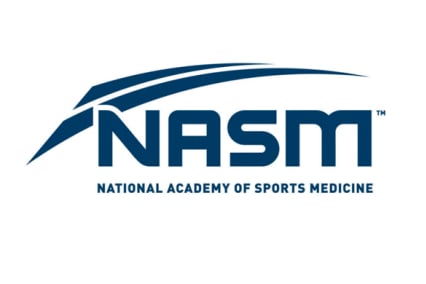
If you’ve asked around the gym, you might’ve heard trainers say that the National Academy of Sports Medicine has one of the most competitive CPT programs around. Santucci confirms that NASM is in the top two most-respected programs in the industry. In its NCCA-accredited 10-week courses, students receive one-on-one coaching and an 8-week hands-on, on-site “Gymnternship”.
Plus, NASM sets new trainers up for success with support in their job hunt even after the course has ended. Fans of NASM appreciate the course’s user-friendly graphics, videos, and comprehensive curriculum that are constantly updated with the latest research. While there are self-study programs available, the all-inclusive program and guided study program offer the most value (by a landslide).
NASM guarantees connections with some of the best fitness experts, with the NCCA Accredited stamp of approval to showcase the quality of your certification as a personal trainer. One graduate writes, “The NASM certified personal trainer certification is totally worth your while if you plan on becoming a certified personal trainer. It is a highly respected certification, and you will have many great specialization opportunities as well.”
Read our full comparison of ISSA vs. NASM here.
Pros & cons
Pros & cons
- 1:1 mentorship
- Gymternship™ gives you on-site, hands-on experience
- Job guarantee within 90 days or you’ll get a refund
- Previous knowledge of Health Sciences and a CPR certification recommended prior to enrollment
- Re-certification is expensive at $399
NCSF
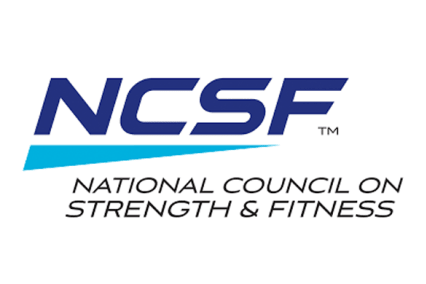
The National Council on Strength and Fitness (NCSF) has partnerships with Equinox, LA Fitness, Gold's Gym, Orange Theory, YouFit, and other fitness studios to help you land your first gig at a top institute. As for the curriculum, the NCSF Easy Learning System™ is one of the industry’s most advanced e-Learning platforms and features digital flashcards, videos, quizzes, and instructor support–which beginners love.
With over 300,000 personal trainers certified by NCSF, the reviews are extremely positive. One person writes, “The Sport Nutrition Specialist certification was very informative with easy to navigate study materials. NCSF was always there to answer any questions I had promptly and professionally. A good experience overall that I would recommend.”
Pros & cons
Pros & cons
- Leader in education and training
- Strong partnerships with top health clubs across the world
- Hands-on and self-guided studies available
- 8,000 exam centers worldwide for convenient test-taking
- No live classes
ACE Personal Training Certification
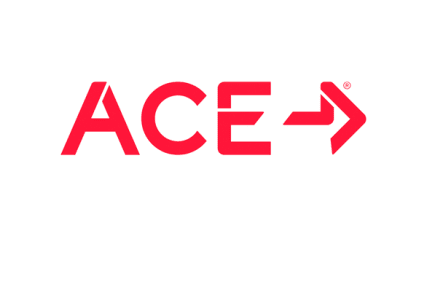
The American Council on Exercise (ACE) is one of the most recognized, NCCA-accredited institutes and certification programs and the largest certifier of health professionals. Over the course of three to six months, students learn an evidence-based approach to the latest scientific research and functional movement training. The program is designed to bring success to all kinds of learners, through textbooks, videos, audio, graphics, and interactive activities along with live webinars, study groups, and Q&A sessions.
In 2022, ACE won gold for best technology in the Brandon Hall Group Excellence Awards and honorable mentions for its flagship course on DEI for health and fitness instructors. One successful graduate writes, “ACE has transformed my life. I have found something that is more than a job and am able to help people in ways I could have never imagined. I am extremely proud, successful, and happy in what I do."
Pros & cons
Pros & cons
- A leader in innovative health and fitness education
- Designed for several learning styles
- Job board and mentors available
- Not as much live instruction
- Longer time commitment
NSCA CSCS®
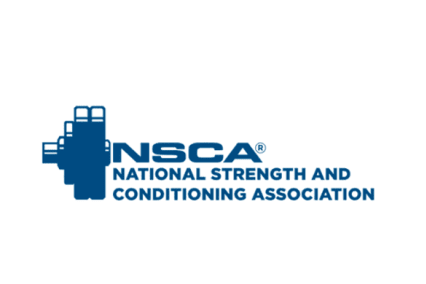
Santucci says the NSCA Certified Strength and Conditioning Specialist Certification® (CSCS®) is the most respected certification. “It has been around for a very long time (the first-ever nationally accredited strength training and conditioning certification program) and is recognized by colleges and universities as an accreditation. It also is the most in-depth course available for strength and conditioning coaches.”
A note for beginners: this isn’t a formal program–it’s all self study. The organization offers three study packages, each designed to meet the needs of candidates based on their background and level of experience, along with helpful resources and Facebook study groups to help set enrollees up for success.
NSCA requires more prerequisites than other programs. To qualify for enrollment, you must either have a bachelor's degree or be enrolled as a college senior with a current CPR/AED certification.
Pros & cons
Pros & cons
- Most respected certificate with higher accreditation
- Exam available in 5 foreign languages
- First-ever NCCA-accredited personal training certificate
- No formal program, only exam study materials and online resources
- Additional prerequisites
NESTA
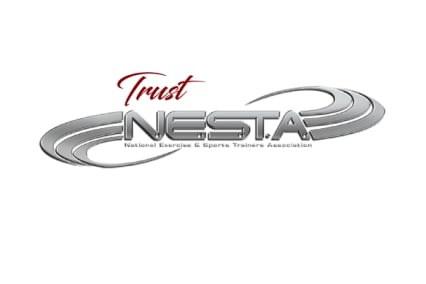
For future trainers who love the work but loathe taking exams in dead-quiet, fluorescent-lit test halls, NESTA is a great choice. They are the only certification on our list that’s valid for four years. Typically, CPT’s need to renew their certifications after just two years, but NESTA exempts you from that at an affordable price, so you only have to put yourself through exam hell twice a decade. The extensive curriculum covers a number of topics including anatomy, biomechanics, nutrition, client assessments, exercise programming, and even how to market your own personal training business.
Trainers are largely pleased with their decision to get certified through NESTA. One writes, “After doing research, I decided to take [all of my courses] through NESTA. Best decision I could have made. Every class I have taken teaches you very practical and useful information to set you up for success in your career goals.”
Pros & cons
Pros & cons
- Valid for 4 years compared to 2 years
- Extremely thorough curriculum
- Includes post-exam kit to support your business
- Lowest tier is not accredited
ACTION-CPT Certification
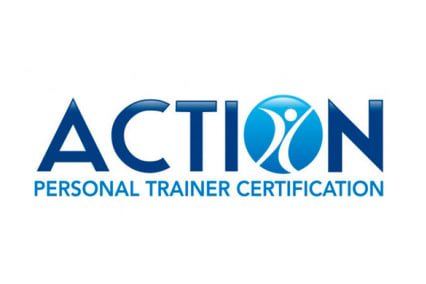
For just under $10 a month, you can get equipped with the knowledge you need to pass your CPT exam through online video classes and real-world simulations as well as the skills to train and motivate your future clients in a safe way. The learning takes place through an app, but the course comes with a physical textbook and digital certification badge. Level up to the mid or top tier options to access helpful add-ons like Kindle textbook, a professional business plan, and a job reference letter.
The sizable downside is that if you choose the most basic of the three class tiers, your certification is only for a “certificate in personal training” and will not be NCCA-accredited. This may not hold up in certain gyms, so if you’re committed to this career path and are seeking a specific job, it’s well worth it to choose the accredited (in-person) exam option.
Pros & cons
Pros & cons
- Payment plans as low as $10 a month available
- Easy and convenient mobile app learning
- No phone support, only email and live chat
Comparing the best personal trainer certifications
| Program | Price | Format | Length | Accreditation | Recertification cycle |
|---|---|---|---|---|---|
| ISSA | $870 | Online | 4-12 weeks | NCCA | every 2 years |
| NASM All-Inclusive or Guided | From $1619 | Online or in person | 3 months or less | NCCA | every 2 years |
| NCSF | From $649 | Online or in person | Self-paced | NCCA | every 2 years |
| ACE | $587 | Online (exam in person) | 3-6 months | NCCA / EHFA | every 2 years |
| NSCA CSCS® | From $300 | Online | Self-paced | NCCA | every 3 years |
| NESTA | From $477 | Online (exam in person) | Self-paced | NCCA (basic tier is not accredited) | every 4 years |
| ACTION CPT | $99 | App | ~2 months | NCCA | every 2 years |
- Price: We picked programs at a variety of price points to meet aspiring personal trainers where they are while also making the process accessible.
- Program length: We selected a range of programs with varying time requirements, from self-paced to four weeks to several months, to fit different timelines.
- Accreditations: It's important that a personal training certificate is accredited by a reliable source. Programs approved by the NCCA are considered a high-quality benchmark for personal training fields.
- Convenience: To accommodate busy schedules, we spotlight self-paced courses that allow you to learn on your own time and offer professional and group support online.
Recertification and continuing education
Something that folks tend to overlook when considering a personal training certification is the work that goes in after you've sat your exam. Almost every personal training certification has an expiration date and requires continuing education credits (or CEUs) to stay valid. The timelines vary by organization, but most give you between 2-4 years to accrue the required CEUs.
The definition of a CEU also varies by org, but most will accept hours of hands on experience or additional courses to keep your certification fresh. A word of caution: if you neglect your CEUs, you may end up paying more money to re-sit your exam.
Additionally, most organizations will ask you to provide proof of a current CPR certification, which typically expires after 2 years.
Who should enroll in a personal trainer certification?
Santucci says a personal trainer certification program is great for "anyone interested in training clients on their health and fitness and, honestly, anyone who wants to give advice, say on social media, regarding health and fitness." While you don't need to be certified to be a paid trainer, most health institutes and clients will ask to see your certificate—and we highly recommend confirming your own trainer's certification to make sure you are in good hands.
If you want to make personal training your career or even side hustle, it's a good idea to earn your certificate so you can ensure you're training your clients safely and effectively.
A stamp from the National Commission for Certifying Agencies (the NCCA) is like the gold standard for any trainer certification. To obtain this, you must have a high school degree or GED and hold a current cardiopulmonary resuscitation (CPR) certification or an automated external defibrillator (AED) certification. A few highly renowned programs have even more requirements, which we've called out in our list below.
"[Personal trainer] certifications provide the basic knowledge you need to practice, but the best way to learn is by doing and getting experience under your belt," Santucci says. "You cannot just get the certification and think you are an expert. You need to have hands-on experience with clients, and you need to understand how to apply the things you learn.
Getting a certification doesn't make you a coach. Hands-on experience training clients makes you a coach." In short, if you're up for the challenge—then a certification is very worth it but is only the first step in your journey as a trainer.
How to choose a personal trainer certification course
While there are some clear-cut standards, like being NCCA-accredited, that make some personal training programs a cut above the rest, it's also important to consider personal factors, preferences, and your long-term plan.
Santucci says the first step is to "realize your goals as a personal trainer, the population you want to work with, your financial commitment, and time commitment." For example, if you dream of being a trainer to highbrow clients at a luxury facility in a large city such as Los Angeles, New York, or Miami, you'll absolutely want to seek out programs that are NCCA-accredited and well respected at those particular facilities.
To fully narrow in on the right certification for you, Santucci advises looking beyond the program itself and asking the right questions. "Look at the people you admire and who are well respected in the field and ask: What courses did they take? What are their methodologies that led them to where they are?"
Lastly, most personal trainers decide their own rates, and there is not one particular certification that will help you earn the most. Your best bet is to check with the gyms or facilities you'd prefer to work at and see which certificates are most likely to get you a job there.
How much does a personal training certification cost?
As you'll see from our list, the cost of a personal training certification varies greatly by the company you choose to study with and the depth of the course. Our lowest-priced option starts at $99 and the highest costs over $1,600.
When considering how much you're willing to spend on a course, keep the following in mind:
- Study materials and support: Some higher-priced courses include more in depth coursework and even in-person lessons. You can likely save a few hundred dollars by doing a self-study program with an online textbook, as long as you know that method will still be beneficial for your learning style.
- Program reputation: As Santucci mentioned above, if you know the accreditation and brand name will carry weight for the trainer jobs you want, you'll want to prioritize certifications like NASM, ACE, or NCSA. These programs may be more expensive than others, but if big-time training is your goal it may be worth the investment.
- CEU's: Unless you're banking the required hands-on training time for recertification, you'll likely need to spend additional cash on continuing education credits to keep your cert fresh. Costs will vary by program, but some (like ACE) help by bundling CEU's so you can acquire the additional courses you need with one purchase.
How a personal training certification can support your longevity
Helping others work toward their mobility and fitness goals can be an extremely fulfilling line of work. Plus, working as a personal trainer is also a great way to keep yourself moving and engaged with others, which is increasingly rare in today's WFH society. Depending on whether you choose to work independently or within a gym, it's also a profession that allows for a decent amount of flexibility and ownership of your schedule, which research suggests1 can help reduce feelings of work-related stress.
If you're ready to get serious about becoming a trainer, a certification is the first place to start. Just remember that the requirements for becoming a personal trainer go well beyond a one-and-done exam. As a CPT, you'll want to continue learning—both on the gym floor and beyond—to stay up-to-date with the latest science and keep your certification valid.
Frequently asked questions
What personal trainer certification is most respected?
According to Santucci, the NSCA CSCS is the most respected certification, and NASM is the next most respected.
Which is better ACE or NASM?
"NASM is a better overall certification, while ACE is more basic," Santucci says.
What certifications should I get as a CPT?
Santucci says it's important anyone training others should have a general personal training certification under their belt. "As you get more experience, you should focus on more sports-specific certifications depending on your goals as a trainer."
What is the fastest personal training certification to get?
Santucci recommends ISSA as a fast-track program for those looking to speed up their success.
The takeaway
With plenty of options to choose from, finding a personal training certificate that's the right fit for you can be a significant first step toward turning your passion for fitness into a career. If you're interested in enhancing your practice, check out our best health coaching programs of 2023.
Watch Next
Enjoy some of our favorite clips from classes
Enjoy some of our favorite clips from classes
What Is Meditation?
Mindfulness/Spirituality | Light Watkins
Box Breathing
Mindfulness/Spirituality | Gwen Dittmar
What Breathwork Can Address
Mindfulness/Spirituality | Gwen Dittmar
The 8 Limbs of Yoga - What is Asana?
Yoga | Caley Alyssa
Two Standing Postures to Open Up Tight Hips
Yoga | Caley Alyssa
How Plants Can Optimize Athletic Performance
Nutrition | Rich Roll
What to Eat Before a Workout
Nutrition | Rich Roll
How Ayurveda Helps Us Navigate Modern Life
Nutrition | Sahara Rose
Messages About Love & Relationships
Love & Relationships | Esther Perel
Love Languages
Love & Relationships | Esther Perel
